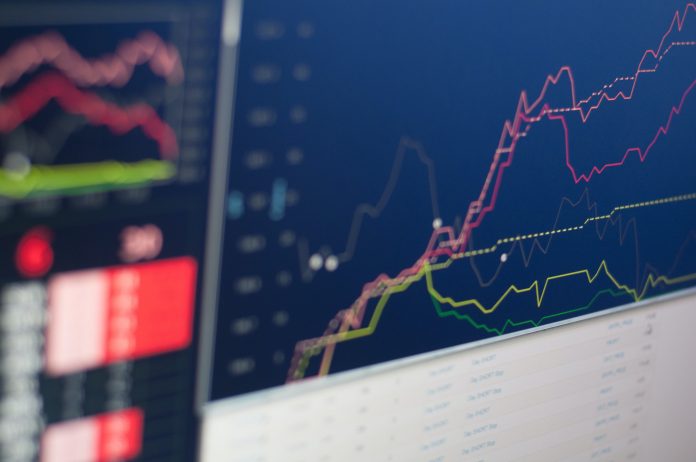Broadly speaking, the global financial market is an incredibly volatile entity, and one that’s home to an increasingly large and broad array of asset classes.
Of course, each of these asset classes and individual markets boasts their own unique level of volatility, with international currencies and the art of forex trading thought to be among the most susceptible to sudden and seismic price shifts.
But why is this the case, and does forex trading represent a viable and lucrative asset class in the current economic climate? We’ll explore this idea in more detail in the article below!
What is Forex Trading and Why is it so Volatile?
Forex trading refers to the buying and selling of international currencies, of which there are more than 170 in the current marketplace. These currencies are traded in pairs and as speculative assets, which means that they can be bought and sold without requiring you to assume ownership of the underlying financial instrument.
This makes it possible to profit even in a depreciating market from a short-term decline in a security’s price, usually before buying the asset back at a much lower and more competitive valuation.
Examples of this can be found in strategies such as ‘scalping’ and ‘arbitrage’ trading, which look to earn incremental profits through a high volume of relatively short-term orders (which may only be kept open for a matter of minutes). In the case of the latter, traders can use forex arbitrage software to profit directly from temporary market inefficiencies, such as broker pricing errors and the mispricing of assets.
Of course, these strategies highlight how the innate volatility of the forex market can be successfully leveraged by traders, but what makes this niche so volatile in the first place?
Well, in the case of major currency pairings such as the EUR/USD, this has much to do with the asset’s underlying liquidity. This refers to the ease with which an asset can be bought, sold and converted into cash, with highly liquid instruments traded more frequently and in a way that contributes directly to price volatility.
At the same time, international currencies are inextricably linked to the economies that underpin them, making them particularly vulnerable to macroeconomic factors. These include inflation and interest rates, which directly influence aggregate supply and demand in the real-time economy (we’ll touch more on this later in the piece).
Trade and capital flows between nations also impact on relevant current values, with this having been borne out by Brexit and the ongoing negotiations between the UK and the EU. More specifically, trade flows and relations have been negatively impacted by Brexit and increased political uncertainty, with this causing the EUR/USD to trade in an ever-depreciating range since 2016.
So, is Forex a Viable Asset in 2023?
One of the most fascinating aspects of forex is that many of its potential benefits could also be described as drawbacks, depending on your individual approach and appetite for risk.
For example, increased market volatility may cause some investors to avoid the FX marketplace, especially if they’re risk averse and have a long-term outlook when it comes to investment.
Conversely, scalpers and investors with a similarly short-term outlook will embrace the market’s volatility and use this to their advantage, utilising a high volume of short-term positions to generate incremental (but cumulative) returns.
This leads us neatly onto the question of investment allocation for 2023, as there’s no doubt that the global economy remains gripped by uncertainty and gradual decline. To this end, a global recession appears to be inching ever closer, although it’s fair to say that this may be shorter and less impactful than initially envisioned.
Unusually, this will be an inflationary recession, with UK inflation having registered 10.1% in January. While January actually saw the rate of inflation depreciate for the third consecutive month (from a peak of 11.1% in October 2022), it remains far above the central bank’s target of 2%, while the use of interest rate hikes to combat the soaring cost of living has also impacted home and business owners adversely.
More specifically, the base rate of interest in the UK has seen multiple hikes since December 2021, peaking at 4% in February. This has significantly increased mortgage and borrowing rates in the short-term, further exacerbating the wider economic crisis and pressure placed on households.
This is creating a particularly volatile FX market at present, and one that continues to see inflation erode the purchasing power of international currencies. While rising interest rates negate this to some degree and help to optimise capital inflows from overseas, most currencies are devalued at experiencing reduced demand at present.
With all this in mind, forex is only really a viable investment option in 2023 if you’re willing to embrace this risk and short assets to leverage continual, short-term price movements. Even then, you’ll need to review and adjust your wider portfolio to ensure that it balances out, while ideally making room for gold, commodities and real estate investments (where possible).
These asset classes all provide a viable hedge against inflation and more reliable returns in the current climate, enabling you to pursue forex returns without incurring increased or unmanageable losses.
If you’re risk averse in your approach and relatively new to the world of investment, it may be better to avoid the forex market at present, or at least minimise the extent to which you trade currencies.



 Bitcoin
Bitcoin  Ethereum
Ethereum  Tether
Tether  XRP
XRP  Solana
Solana  USDC
USDC  Cardano
Cardano  TRON
TRON  Lido Staked Ether
Lido Staked Ether  Avalanche
Avalanche  Toncoin
Toncoin